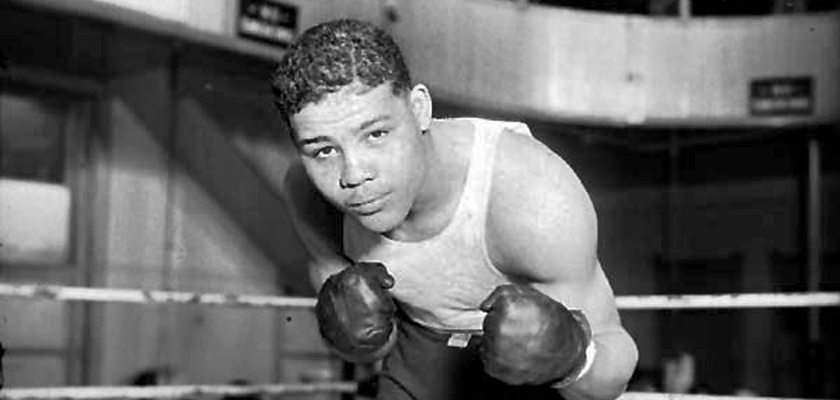Today is the 85th anniversary of Chambers County native Joe Louis’ victory over James Braddock, which won him the heavyweight boxing title in 1937.
Louis, whose real name was Joseph Louis Barrow, is widely considered one of the greatest heavyweights of all time. Throughout his professional career, he suffered only three losses, and, of his impressive 68 wins, 54 were knockouts.
Louis met Braddock at Comiskey Park in Chicago. He was knocked down early in the match but knocked Braddock out in the eighth round.
After winning the title, Louis defended it for 11 years. To this day, he has defended his title more times than any other boxer in history.
Childhood in Chambers County
Louis was born on May 13, 1913, in a shack in rural Chambers County, roughly six miles from LaFayette. He was the seventh of eight children, and his father was a sharecropper about whom little is known. According to the Encyclopedia of Alabama, his father likely died when Louis was young.
Louis’s mother remarried Patrick Brooks, who already had eight children of his own.
Move to Michigan
After receiving threats from the Ku Klux Klan, Brooks decided to relocate the family to Detroit, where he got a job in the automotive industry. There, they settled in a growing Black neighborhood on the east side of town.
When he was 16, Louis’ mother gave him money to take violin lessons, which he used to pay for a locker at a gym where he could box.
Amateur career
Louis became known simply as “Joe Louis” because he ran out of room when filling out his name for one of his first fights.
As an amateur, Louis posted a 50-4 record and made it to the Golden Gloves finals in 1933. In 1934, he won the National Amateur Athletic Union light heavyweight championship.
Early success
Louis went pro in 1934 after meeting John Roxborough, a Detroit businessman and gambling mogul with a fair sum of money. Roxborough became Louis’s manager and kept his position throughout Louis’s professional career.
Louis’s first professional fight was on Independence Day 1934. He knocked out Jack Kracken in less than two minutes.
Louis went on to win his first 27 fights, 23 by knockout. He amassed a total of $371,645 during that time, which is roughly equivalent to over $8 million today, according to the US Inflation Calculator.
On June 19, 1936, Louis was knocked out in the 12th round by German boxer Max Schmeling, marking the first loss of his professional career.
Schmeling rematch
Plagued by the result of the Schmeling fight, Louis sought a rematch after he became heavyweight champion in 1937.
Louis faced Schmeling again on June 22, 1938 and knocked him out just two minutes into the fight.
This propelled Louis into the status of national hero, given Schmeling’s German nationality during the reign of Adolf Hitler.
Military Service
Louis enlisted in the Army during World War II and participated in 96 boxing exhibitions to raise money for the Armed Services relief funds. He used his status to help other Black soldiers get admitted to Officer Candidate School, including soon-to-be baseball legend Jackie Robinson.
Retirement and family life
Louis retired in 1949.
Though Louis’s career grossed over $4 million, he only received roughly $800,000 of it.
Due to tax debt, Louis faced severe financial problems. He attempted to make a comeback, but his career ended when Rocky Marciano defeated him in 1951.
Louis married Marva Trotter in 1935. Though the couple divorced, remarried and divorced again, they had two children together and Louis also adopted three other children.
In 1955, Louis married successful Harlem businesswoman Rose Morgan, but their marriage was annulled in 1958.
Louis married Martha Jefferson in 1959 after the government forgave his tax debt.
In 1980, Louis suffered from a stroke and died of a heart attack a year later. He was buried with military honors at Arlington National Cemetery.
Today, Louis remains a cultural icon. His namesake is featured in a handful of musical tributes and he is portrayed by Bari K. Willerford in the 2007 film “American Gangster.” An opera based on his life, “Shadowboxer,” premiered in 2010.
To connect with the author of this story, or to comment, email will.blakely@1819news.com.
Don’t miss out! Subscribe to our newsletter and get our top stories every weekday morning.










